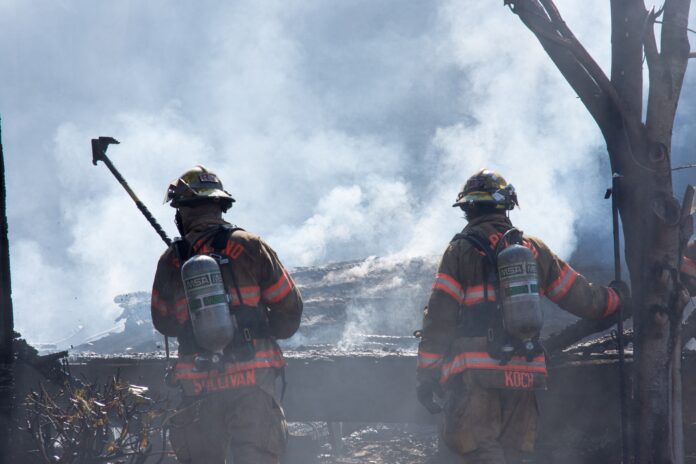With wildfires raging around the world during last summer, global warming is baring its teeth. Beyond the devastation and human displacement, the prevalence of extreme weather events is putting overstretched firefighters at risk. Responding to this challenge, Barcelona-based AI platform Prometeo teamed up with IBM to monitor the health conditions of firefighters in order to understand health problems better.
The recent report by the IPCC has shown what a profound risk climate change represents. A less academic indicator is the ever-increasing extremes of weather. In particular, rising temperatures are producing greater numbers of wildfires, from Australia, Greece, Turkey, to California, and even Siberia.
As a result, firefighters have been more stretched than ever before, wrestling with wildfires of unprecedented scale and frequency with limited local resources. While tackling wildfires, they can become exposed to toxins in smoke, such as carbon monoxide, benzene, and sulphur dioxide. With the recent added pressure, firefighters are even more in danger, potentially neglecting their health in their efforts to get the job done.
The problem is that there is currently not a lot of data about firefighters’ vitals, explained Prometeo CEO and co-founder Salomé Valero.
“Some of the immediate effects they feel from breathing in smoke is getting headaches. But there is evidence they can suffer respiratory diseases, cancer, and stress disorders,” she said.

Firefighter sensing
This is why Prometeo developed a wearable IoT device the size of a mobile phone that can record aspects of a firefighter’s environment. By taking metrics on temperature, humidity, and air quality the platform can determine their levels of exposure.
Prometeo takes the device data and sends it to IBM’s cloud platform, which then channels it to the IBM Watson-based machine learning model. The information is distilled into a simple colour-coded status — green, amber, or red. This allows fire command centres to monitor the health of each individual firefighter.
With real-time data, effective monitoring becomes possible, Valero explained. This gives teams better visibility about who has been dangerously exposed and needs to be taken off the front line.
Veteran firefighter, and Prometeo COO and co-founder, Joan Herrera has first-hand experience of the risks.
“Through the software […] we can decide how the firefighter is doing over time and if we can continue to use him or should take him out to rest,” he explained.
Emergency services personnel will rarely tell you if they are feeling dizzy or having difficulty, but the platform produces unequivocal data.
“If I know today that [fighter] number three has been very exposed to [carbon monoxide] all day, tomorrow the computer will be able to say he should not go out,” the Prometeo team explained.
With wildfires running rampant, firefighters are under added pressure and at risk of greater levels of frontline exposure. Prometeo’s technology therefore has the potential to improve health outcomes by monitoring and reducing firefighters’ exposure to these toxins. This in turn could reduce the number of them developing serious health conditions later in life.

Going forward
In February last year, Prometeo worked with an ecosystem of technical and subject matter experts for the first field test conducted with a renowned Catalonia firefighting unit outside of Barcelona.
Now, thanks to IBM, the company is deploying the project worldwide to further its development and gather more data. The devices are inexpensive, costing a few dollars per unit thanks to the use of 3D printers. The core technology, supported by Linux Foundation, seeks to engage the open-source community to fuel development through the Pyrra project.
“Prometeo is an outstanding solution because it leverages the real experiences of first responders and technologists who have witnessed the human toll of wildfires,” said Mami Mizutori, special representative of the UN Secretary-General for Disaster Risk Reduction.
Prometeo brought its solution to IBM’s Call for Code Global Challenge 2019, winning the top prize of $200,000 along with technical and computing assistance.
IBM’s Call for Code is an annual competition started in 2018 that challenges hundreds of thousands of developers to tackle large social and humanitarian problems through sustainable open-source solutions. It engages 179 countries and has a budget of $30 million over five years.



